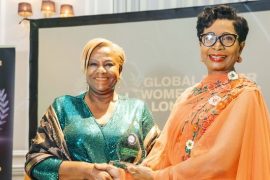By Tanya Maswaure
From the time a black girl has grown her hair long enough, it is the parent’s job to decide what to do to maintain her hair and keep it neat and unique. Thinking about my childhood, I recall my mother’s effort and attention to my hair. One common occurrence we relate to regardless of our continent, nationality or tribe was the ‘relaxer’. The smell of the chemicals mixing with your hair and the straightener on your hair is one I share with many other black girls in the world. Why do we put so much effort into making our hair straight? Chimamanda Ngozi Adichie spoke about black hair extensively in her book Americanah but what about black hair that makes it so memorable. Why is something seemingly cosmetic and minuscule so political?
Chimamanda explained it simply: “Hair is something we see, but we don’t understand what’s behind it, kind of like race. It’s the same way that something seems obvious, but it is really complicated and complex.” I only learned this when I started university and conversations on ‘work dress’, and formal wear started. Like skin colour, culture, and beliefs, hair is part of a person’s unique identity. Hair is a unique print, but it can be manipulated to the owner’s liking. From the time I was a young girl, my hair would be relaxed or plaited without any real significance. Most of the time, this was to stick to the school rules. Then one day, whilst doing some research in class, we stumbled upon the google search theory. If you google search ‘professional hair’, only straight hair on white people or hair pulled into a bun will appear, whilst if you google ‘unprofessional hair’, dreadlocks and afros will appear. Just the mere untouched natural state of black hair is still considered unprofessional. The question is why and the answer is relatively simple: Historical beauty standards.
Although we are arguably past the days of slavery and colonisation, black culture, regardless of the continent, has been tainted and painted as less than. If a particular race is considered less, inevitably, the look and features of that race are considered not appealing. Of course, in the 21st century, this has been problematised and is currently being addressed. Unfortunately, we can still feel the aftermath of these baseless theories. In the mind of the corporate world, even in the black business world, it is still challenging to unlearn these thoughts and beliefs. Sometimes black ladies receive compliments that may seem backhanded such as asking if the hair is ‘real’ or how it is ‘pretty for black hair’. These slight comments do more than change how we think, but it consolidates how we all feel about black hair.
On the other hand, there has been a black hair awakening. More black women are becoming more confident with their hair. Many celebrities have commented on this liberation, calling it a step in the right direction. “I cried, I cried… it was such an emotional experience, and it wasn’t just about hair. It was what my perception of beauty was and had been for all of my life, and then I look at myself in the mirror, and I’m like, ‘That doesn’t look like what I thought was beautiful.'”, Teyonah Parris commented on her reaction to going natural. From personal experience, when I cut my hair and began my natural hair journey, something was empowering about it. It is almost liberating to have complete control of your hair and what I put in it. Knowing that I don’t conform is invigorating, but it is beyond that. It is my history.
Before slavery, natural hair amongst black women showed status and wealth. Each protective hairstyle and ‘product’ applied to the hair added relevance and importance to their identities. “A person could tell who they were talking to simply by looking at the hairstyles,” said Lori Tharps, a professor of Journalism at Temple University and co-author of Hair Story: Untangling the Roots of Black Hair in America. The use of grain and natural resources, the same resources that colonisers then exported, made every group and black woman unique. Yet unfortunately, “we went from loving our hair and carefully caring for our hair, to covering up our hair and trying to emulate European styles [but] not because we thought they were pretty. There was none of that,” said Tharps. This was all to conform.
There is so much politics behind hair and so much conversation to emerge. How can we change these theories in our favour, and how can we embrace our unique identities without having to lose our jobs and close opportunities? At the same time, because of the new awakening and the knowledge of the internet, themes such as cultural appropriation will arise. The conversations are only beginning. Next week we will talk about the different raw products that are perfect for black hair and those that are not. Let us continue this conversation, and maybe one day, we will reach a satisfying end.





Comments are closed.